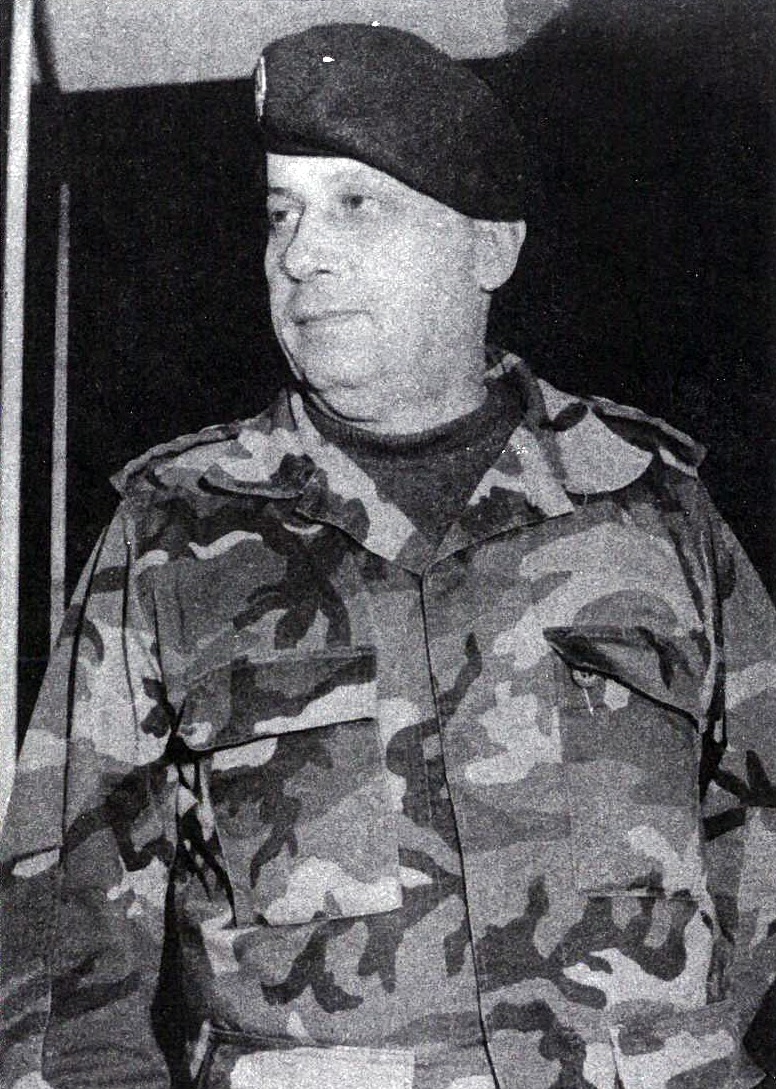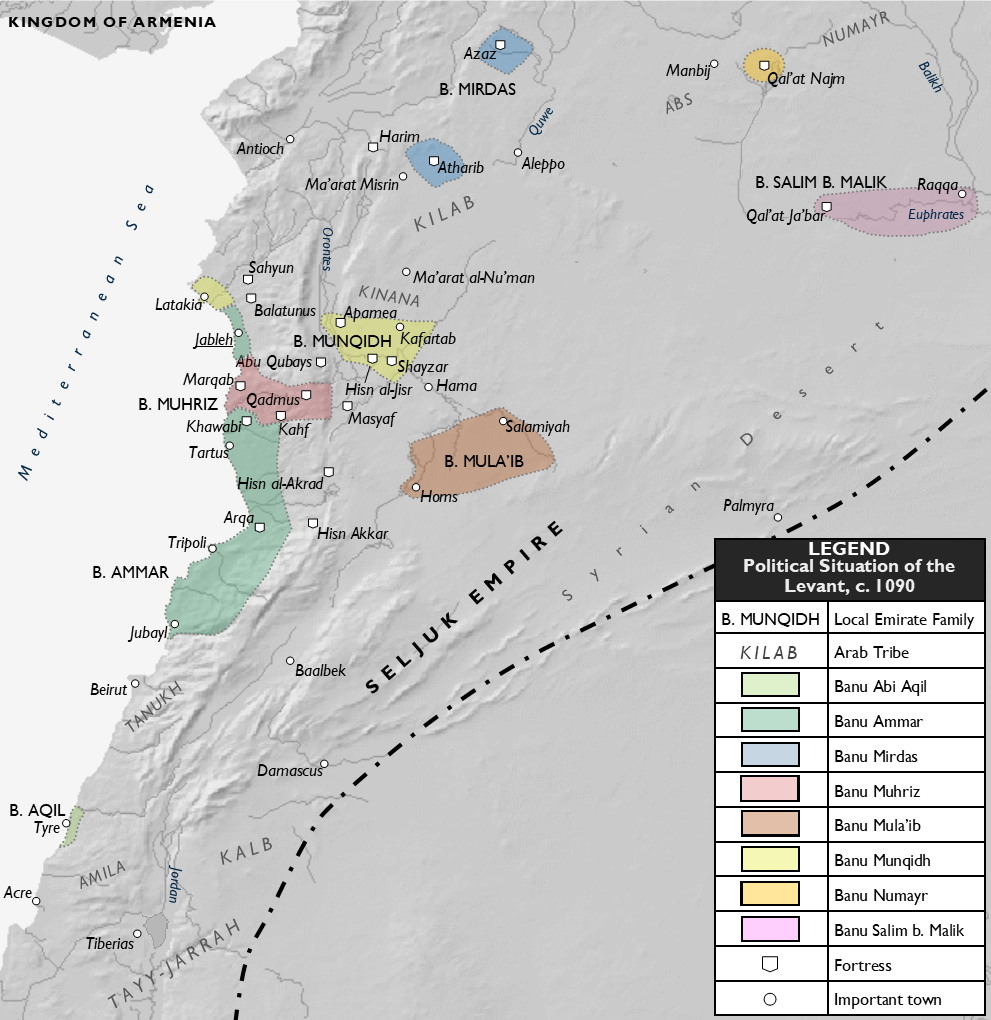|
2014–2016 Lebanese Presidential Election
A series of rounds in the Lebanese presidential election were held from 23 April 2014 until 31 October 2016. No candidate reached a two-thirds majority vote in the first round, and subsequent rounds failed to gain a quorum. Finally, in the forty-sixth round held on 31 October 2016, Michel Aoun, a Member of Parliament and formerly a disputed Prime Minister and Acting President in a rival government near the end of the Lebanese Civil War, was elected with 83 votes in Parliament. He took office the same day as the 13th President of Lebanon since independence in 1943. Background Prior to the formation of the Salam government, the main consideration was carrying out the presidential election, which would precede the parliamentary election and a new electoral law. This follows an impasse between the March 14 Alliance and the March 8 Alliance. The Future Movement's former prime minister and parliamentary leader Fouad Siniora had started the process of discussion for the election prio ... [...More Info...] [...Related Items...] OR: [Wikipedia] [Google] [Baidu] |
Michel Aoun
Michel Naim Aoun ( ar, ميشال نعيم عون ; born 30 September 1933) is a Lebanese politician and former military general who served as the President of Lebanon from 31 October 2016 until 30 October 2022. Born in Haret Hreik to a Maronite Christian family, Aoun joined the Military Academy in 1955 and graduated as an artillery officer in the Lebanese Army. In 1984, he became the youngest Commander of the Army, at the age of 49 years. On 22 September 1988 during the fourth phase of the Lebanese Civil War, the departing President Amine Gemayel appointed him as the interim Prime Minister of a Military Government, after the parliament failed to elect a new president, and dismissed the current government headed by the Acting Prime Minister Selim Hoss. This controversial decision saw the rise of two rival governments contending for power at that time, with Aoun being supported mainly by Christians and Iraq, while the other being supported by Muslims and Syria. He declared ... [...More Info...] [...Related Items...] OR: [Wikipedia] [Google] [Baidu] |
Maronite Christianity In Lebanon
Lebanese Maronite Christians ( ar, المسيحية المارونية في لبنان; syc, ܡܫܝܚܝ̈ܐ ܡܪ̈ܘܢܝܐ ܕܠܒܢܢ) are adherents of the Maronite Church in Lebanon, which is the largest Christian denomination in the country. The Maronite Church is an Eastern Catholic Church in full communion with the worldwide Catholic Church. The Lebanese Maronite Christians are believed to constitute about 30% of the total population of Lebanon according to election results. Lebanon's constitution was intended to guarantee political representation for each of the nation's ethno-religious groups. The Maronite Catholics and the Druze founded modern Lebanon in the early eighteenth century, through the ruling and social system known as the " Maronite-Druze dualism" in Mount Lebanon Mutasarrifate. Under the terms of an unwritten agreement known as the National Pact between the various political and religious leaders of Lebanon, the president of the country must be a Maronite. ... [...More Info...] [...Related Items...] OR: [Wikipedia] [Google] [Baidu] |
Robert Ghanem
Robert Ghanem (8 May 1942 – 10 February 2019) was a Lebanese lawyer and politician. Early life Ghanem hailed from a Maronite family. He was the son of Lebanese army general Iskandar Ghanem. Career Robert Ghanem was a longtime deputy of the National Assembly of Lebanon and was the minister of education in the second government of Rafic Hariri. Robert Ghanem was a candidate for President of Lebanon and participated in the 2014 Lebanese presidential election. Views Robert Ghanem was a member of the March 14 alliance The March 14 Alliance ( ar, تحالف 14 آذار, taḥāluf 14 adhār}), named after the date of the Cedar Revolution, is a coalition of political parties and independents in Lebanon formed in 2005 that are united by their anti-Syrian stance .... But nevertheless, Ghanem is viewed as a moderate politician with relations across the political spectrum. Personal life Ghanem was married to the journalist Viviane Haddad since 23 January 1975 and father of two chi ... [...More Info...] [...Related Items...] OR: [Wikipedia] [Google] [Baidu] |
Boutros Harb
Boutros Harb (بطرس حرب) (born 3 August 1944) is a Lebanese politician who served at different cabinet posts including Minister of Telecommunications. Early life and education Harb was born into a Maronite family in Tannourine, Lebanon on 3 August 1944. He holds a law degree. Career A lawyer by profession, Harb first held political office when elected in 1972 as the Maronite deputy for Batroun, in the North Governorate of Lebanon, being appointed public transport minister for labour and minister of the national education and art schools in 1979 in Salim Hoss's government, and remaining minister until 1980. From 1990 to 1992 Harb returned to the education ministry in the cabinet of then Prime Minister Omar Karame. Harb was credited with helping negotiate the Taef Agreement, which brought the Lebanese civil war to an end by electing a power sharing agreement within the Lebanese Parliament, giving Christians and Muslims equal representation in Parliament by assigning ... [...More Info...] [...Related Items...] OR: [Wikipedia] [Google] [Baidu] |
Jean Kahwaji
Jean Kahwaji (, ar, جان قهوجي; born 1953) is a former Lebanese military officer and Commander of the Lebanese Armed Forces from 2008 to 2017. Career Kahwaji joined the Lebanese army in 1973. He trained abroad, especially in the United States and Italy. He also underwent anti-terrorism training in Germany in 2006, as well as in Italy. He headed the army's 12th Infantry Brigade since 2002.. He also went to the Swedish military school in Boden Garrison in Sweden for terrain warfare during the 1990s. On 30 August 2008, the Lebanese government appointed Brigadier-General Jean Kahwaji to be chief of the Lebanese Armed Forces, replacing Michel Suleiman, who became President of Lebanon in May 2008. He is the 13th chief officer in all of the army's 63-year history. Corruption charges Kahwaji has been charged several times with corruption and illicit enrichment. As an army official, Kahwaji is suspected of using his influence to accrue vast fortunes, and accepting bribes. On D ... [...More Info...] [...Related Items...] OR: [Wikipedia] [Google] [Baidu] |
Riad Salameh
Riad Toufic Salameh (Arabic: رياض توفيق سلامة, born July 17, 1950) is the current Governor of Lebanon, Lebanon's central bank, Banque du Liban since April 1993. He was appointed Governor by decree, approved by the Council of Ministers of Lebanon, Council of Ministers for a renewable term of six years. He was reappointed for four consecutive terms; in 1999, 2005, 2011 and 2017. He is the longest-serving central bank governor in the world. Although credited for maintaining the stability of the Lebanese pound until 2019, Salameh is accused of corruption, money laundering and running the largest Ponzi scheme in history. Early life Riad Salameh was born in Antelias in 1950 into a Christian Maronite family of successful business people, long based in Liberia. His father Toufic Salameh owned the Cedars Hotel in Broummana, and his mother Raniah was a "well-known charitable activist" and Lebanese Red Cross member who was murdered in 1982. He has three siblings. Salameh g ... [...More Info...] [...Related Items...] OR: [Wikipedia] [Google] [Baidu] |
Jean Obeid
Jean Obeid ( ar, جان عبيد; 8 May 19398 February 2021) was a Lebanese journalist and politician, who served in different cabinet posts, the last of which was foreign minister of Lebanon from 2003 to 2004. Early life Obeid hailed from a Maronite family. He was born in Alma, a village in the Zgharta district, on 8 May 1939. Career Obeid was a journalist by profession. He held several high-level positions in various newspapers and magazines. He was an advisor on Arab affairs to two former Lebanese Presidents, Elias Sarkis (1978-1982) and Amin Gemayel (1983-1987). Gemayel also appointed him special envoy to Syria. On 11 February 1987, Obeid met with Parliament Speaker Hussein Husseini and was kidnapped by nine gunmen in west Beirut. Obeid was freed unhurt after four days. Obeid served as a member of the parliament, representing Chouf from 1991 to 1992 and Tripoli from 1992 to 2005. He served as minister of state in the cabinet led by Prime Minister Rafik Hariri in 1996. Th ... [...More Info...] [...Related Items...] OR: [Wikipedia] [Google] [Baidu] |
Samir Geagea
Samir Farid Geagea ( ar, سمير فريد جعجع Lebanese pron.: , also spelled Samir Ja'ja'; born 25 October 1952) is a Lebanese politician and militia commander who has been leading the Lebanese Forces party and dissolved militia since 1986. Born in Ain al-Remaneh in Beirut with origins from Bsharri, Geagea joined the Kataeb Party in his early years. He led the Northern Front in the Lebanese Forces from 1979 to 1984. In March 1985, after the deterioration of the Christian political situation in the eastern regions after the assassination of the Lebanese Forces leader Bachir Gemayel, he led, jointly with Elie Hobeika and Karim Pakradouni, an uprising that led to control of the political situation without any bloodshed. On January 15, 1986, Geagea led a movement against the tripartite agreement sponsored by Syria to become the commander of the Lebanese Forces after the overthrow of Elie Hobeika, the head of the executive body at the time and one of the signatories o ... [...More Info...] [...Related Items...] OR: [Wikipedia] [Google] [Baidu] |
Suleiman Frangieh, Jr
Suleiman Antoine Frangieh ( ar, سليمان بك فرنجية; born 18 October 1965) is a Lebanese politician. He is the incumbent leader of the Marada Movement and a former Member of Parliament for the Maronite seat of Zgharta-Zawyie, in North Lebanon. Early life Suleiman was born in Zgharta, Lebanon on 18 October 1965 to a political family who claim to be the decedents of the Mardaits. He is the son of the late Tony Frangieh, who was assassinated in the Ehden massacre in 1978, and grandson of the former Lebanese President Suleiman Frangieh and as such, carries his grandfather's name. Samir Frangieh was Suleiman's cousin once removed. Suleiman Frangieh's grandfather brought him to Syria after the Ehden massacre, which was perpetrated by rival Maronite Kataeb Party militia forces. In Syria, Suleiman was taken under the wing of Bassel Assad, eldest son of the Syrian President. His friendship with the Al Assad family has remained close since then. Political career Suleiman ... [...More Info...] [...Related Items...] OR: [Wikipedia] [Google] [Baidu] |
Greek Orthodox Christianity In Lebanon
Lebanese Greek Orthodox Christians (Arabic: المسيحية الأرثوذكسية الرومية في لبنان) refers to Lebanese people who are adherents of the Greek Orthodox Church of Antioch in Lebanon, which is an autocephalous Greek Orthodox Church within the wider communion of Eastern Orthodox Christianity, and is the second-largest Christian denomination in Lebanon after the Maronite Christians. Lebanese Greek Orthodox Christians are believed to constitute about 8% of the total population of Lebanon.Lebanon – International Religious Freedom Report 2010 U.S. Department of State. Retrieved on 14 February 2010. [...More Info...] [...Related Items...] OR: [Wikipedia] [Google] [Baidu] |
Shia Islam In Lebanon
Lebanese Shia Muslims ( ar, المسلمون الشيعة اللبنانيين), historically known as ''matāwila'' ( ar, متاولة, plural of ''mutawālin'' [Lebanese pronounced as ''metouali'']) refers to Lebanese people who are adherents of the Shia Islam, Shia branch of Islam in Lebanon, which plays a major role along Lebanon's main Sunni, Maronite and Druze sects. Shia Islam in Lebanon has a history of more than a millennium. According to the ''CIA World Factbook'', Shia Muslims constituted an estimated 28% of Lebanon's population in 2018. Most of its adherents live in the northern and western area of the Beqaa Valley, Southern Lebanon and Beirut. The great majority of Shia Muslims in Lebanon are Twelvers. However, a small minority of them are Alawites and Ismaili. Under the terms of an unwritten agreement known as the National Pact between the various political and religious leaders of Lebanon, Shias are the only sect eligible for the post of List of Speakers of the ... [...More Info...] [...Related Items...] OR: [Wikipedia] [Google] [Baidu] |



.jpeg)


